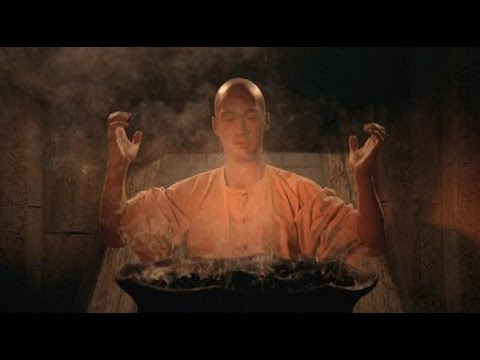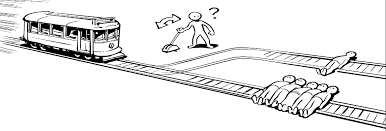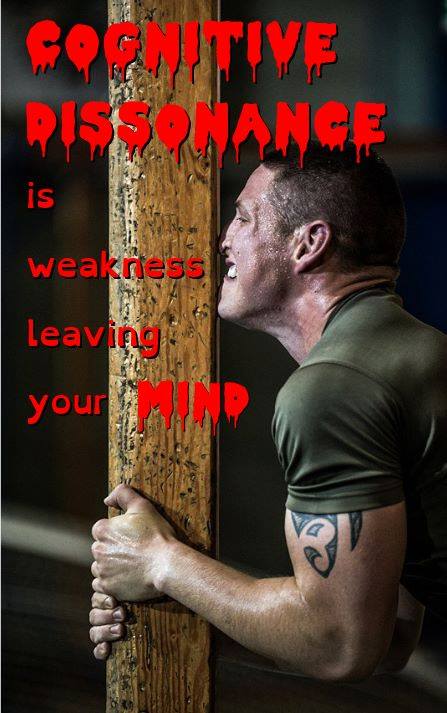
The Trolley Problem is a cyclical (iterative) experiment, showing how a change in the available information can affect the choices made.
To increase the emotional factor in the decision-making process, it is dramatized as a scene where a speeding car runs along a track, and the subject of the experiment (the "player") has to decide whether to divert it to one track or the other.

One of the options is technically easier because it only requires doing nothing. Without player interference, things will (khem, khem) take their course anyway.
The Trolley Problem trap is built of three parts:
-
The experiment has an arbitrary number of cycles. In each consecutive cycle, the experimenter (equivalent to the game master "GM" / director) changes the scope and content of the information available to the player, trying to lead them from a situation of simple and obvious choice to a situation in which the choice becomes less and less obvious.
-
The player is also under increasing tension between the emotional aspect (Track A: the last panda on the planet; Track B: a psychopathic rapist, the future father of the first feminist president of the Earth Nations Federation) and the implicit expectation that they will solve the dilemma using rational thinking only. In reality, the only goal of the MG is to drive the player to a nervous breakdown due to an unbearable cognitive dilemma.
-
A subtle element of the trap is the time travel aspect. Each cycle (iteration) begins (in the story world – "in-game") at the same point – after a full reset. However, "out-game" the player is aware of previous cycles and the choices made in them. The human mind tends to become attached to its own decisions. The MG tries to push the player to change his or her decisions for less and less obvious reasons, which adds to the discomfort, as the mind wants to see itself as an "integrated" being, not an unstable one.
How to get out of the trap (and use the experience to strengthen self-determination)?
This requires developing several important elements of awareness, which boil down to a readiness to make (and fix) mistakes.
1. Acknowledging the information reset.
When I receive new significant information regarding a previously made decision, it is as appropriate as possible to review that decision and possibly change it. I don't get attached to my previous choices, and it doesn't offend me if I back out of them.
2. Accepting the limitations of rational thinking.
Regardless of the completeness of the decision information, I am always ready for the fact that some things cannot be (especially under time pressure) compared rationally. I am ready to make some decisions (after exhausting other sensible ways) randomly or intuitively, and accept the consequences.
3. Accepting that my knowledge and agency are incomplete – always and everywhere.
I will never have full knowledge of the circumstances of my choices. I will never be fully capable – physically, mentally or emotionally – of making and executing every decision imaginable.
To sum up, the trap of the trolley dilemma is to impose unrealistic and contradictory expectations on the player. And getting out of it requires acknowledging one's own limitations and making more direct contact with reality (bypassing even the most magnificent intermediaries).
The plus side is that it doesn't require rearranging a vase full of glowing coals with your bare hands....













Yes. Many years ago, I had a hot summer affair with Ayn Rand. Moaning with pleasure, I read "Atlas Shrugged" through (including 181-pages long programmatic monologue of John Galt). When I finished reading, I looked around, and said to myself, "No f... way!"
Historically, that was my turning point towards anarchism.